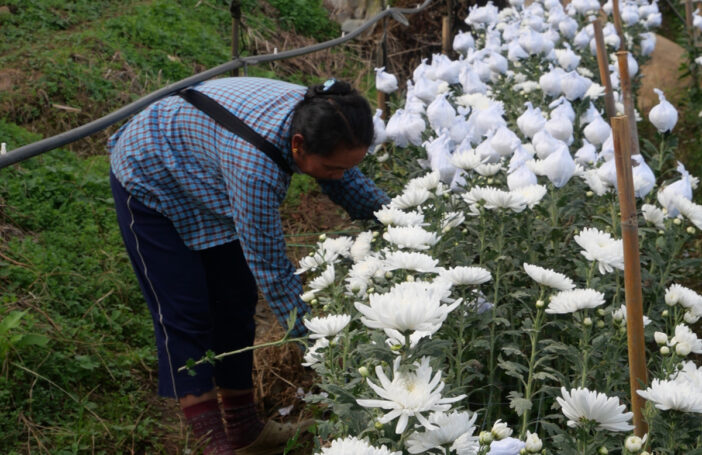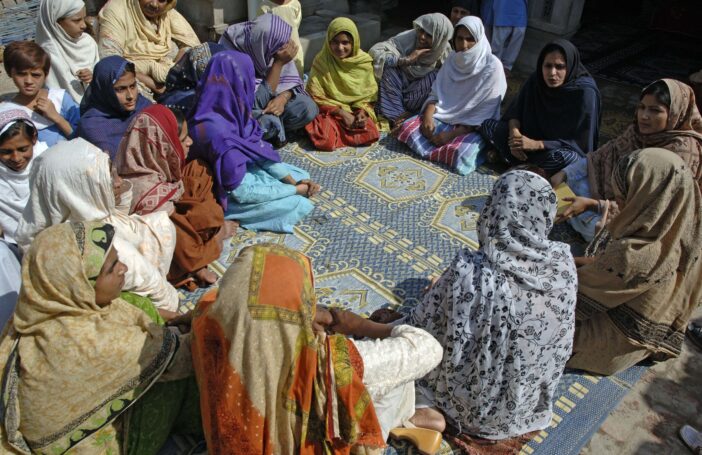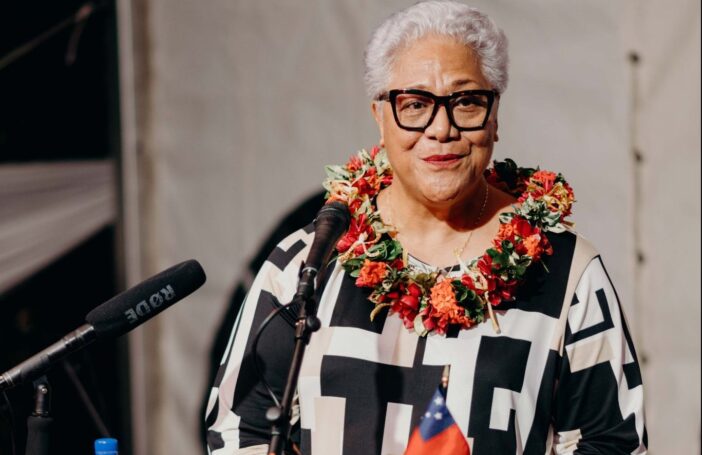All populations are vulnerable to human trafficking. This is a low-risk, high-reward criminal activity for male traffickers who benefit from the vulnerabilities of women. Human trafficking is enabled by patchy policing, low levels of prosecution, and underfunded prevention. Traffickers prey upon women and girls with a single aim: to exploit for profit, with no regard for the well-being of their victims.
The UN and other organisations have effectively documented this male-dominated transnational criminal enterprise. But multilateral institutions, states and law enforcement entities have been less effective in describing or addressing one of the most cunning aspects of human trafficking: it is heavily dependent upon the recruitment of women by women. Female traffickers are routinely groomed by more experienced male criminal gang leaders to then become an integral part of the manipulative recruiting process.
This doubly exploits women, first as victim and then, all too frequently, as participant victimiser. Therein lies the conundrum. Arguably, human trafficking is the only transnational crime in which women are centrally represented as victims, as perpetrators, and also as advocates for change. Breaking the cycle of female victimisation by offering women recruiter-defendants immunity in exchange for prosecutorial cooperation offers a chance for pivotal change.
Literature on the role of women as perpetrators of human trafficking crimes focuses on the socio-cultural contexts that set conditions for participation. In the Greater Mekong Subregion (the Mekong), that cultural context is anchored in a nurturing mother narrative, which synchronises well with female recruiters posing as trusted carers to potential victims. By and large, women in the Mekong region view interactions with other women as safer than interactions with men. This cultural vulnerability is compounded by women’s lower levels of access to mobile phones, computers, and other resources that might help inform better decision-making.
These inherent sociocultural vulnerabilities combine to influence female trafficking targets to put their trust in the female recruiters, who are themselves often former victims of human trafficking. A recently published report by DT Institute highlights how the global COVID-19 pandemic has further exacerbated economic and gender imbalances in the region, and is significantly contributing to the vulnerabilities that tend to expose primarily women, girls and minority populations to trafficking.
By designing victim recruitment to feature the use of women as the lure, criminal entrepreneurs insulate themselves from the direct engagement with victims, and conveniently distance themselves from the prosecutorial system. Law enforcement and legal authorities predominantly arrest and prosecute the women recruiters. This legal action actually supports the structure that allows criminal leaders to operate human trafficking enterprises with relatively low risk to themselves.
The prevalence of women as an essential cog in the human trafficking machine in the Mekong region is neither uncommon nor rare. A paper published in 2017 by the UN and the Thailand Institute of Justice (TIJ) showed how, of those arrested for trafficking in persons from Cambodia to Thailand, more than 70% of those incarcerated were women. In those two Mekong-region countries, trafficking was the offence with the highest percentage of female perpetrators.
The UN and TIJ report describes the trafficked victim-turned-recruiter as a “victim defendant”. The paper canvassed the reported cases, convictions and sentencings involving the woman recruiter, or victim defendant. Victim defendants appear to be treated differently from country to country. Without uniform prosecutorial guidelines, judges are left on their own to interpret, weigh and apply leniency, mitigated circumstances or defences to charges of trafficking. These exculpatory complexities vary from court to court. In the end, whether a trafficking victim will have the opportunity to exculpate herself will depend more on the country of her capture than on universally applied principles of judicial fairness.
Offering indemnities is a long-standing prosecutorial strategy to build evidence and facilitate prosecution of organised crime leaders. As supported in the 2017 paper, under most current legal frameworks, offering immunities to traffickers is underutilised by the prosecution.
One approach to solving the problem of double victimising the female defendant could be anchored in the UN Convention against Transnational Organized Crime (subscribed to by a majority of nations), which suggests nation states “consider … granting immunity from prosecution to persons who provide substantial cooperation in the investigation or prosecution of an offence covered by this Convention.”
The convention against transnational crime provides a framework for the international community to consider in granting immunity to women defendants who are caught in the cycle of victimisation and are willing to provide information on these arrangements – whether those women are victims accused of prostitution, undocumented work, or recruiters of other trafficked women. The proposal here is to take that provision one step further – to go beyond considering granting immunity in exchange for cooperation, to legislating it where the victim-recruiter can meet a clearly articulated evidentiary threshold that establishes victimhood, coupled with her unequivocal cooperation in prosecuting members of the criminal enterprise.
The lead in securing adoption of this change to existing trafficking protocols should be taken by those destination countries with strong rule-of-law frameworks and compelling human trafficking ‘demand side’ statistics – starting with the governments of the USA, Australia, China and Thailand.
At the very least, offering this immunity will end the repeated victimisation of the women whose lives have been upended first by organised crime, and then by the justice system. This approach will not only break the cycle of impunity that has favoured traffickers for decades, it will also break the cycle of double victimisation by offering women recruiter-defendants immunity in exchange for prosecutorial cooperation. This may increase the chances of energising existing human trafficking laws to target the real offenders.





